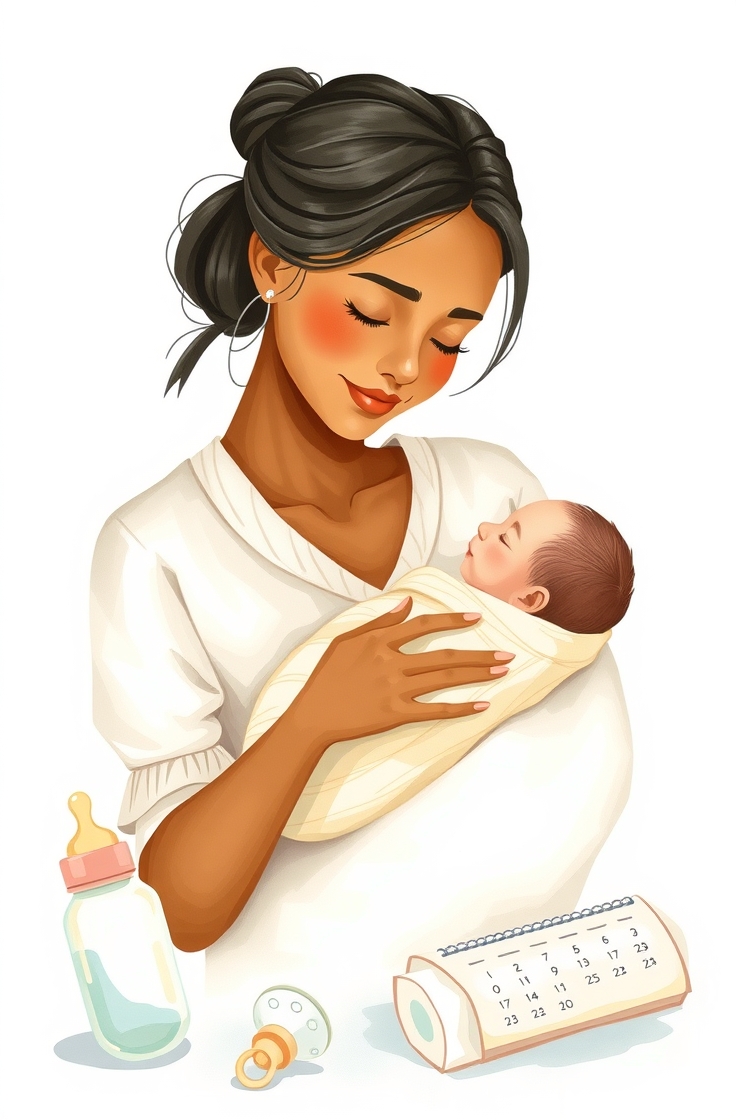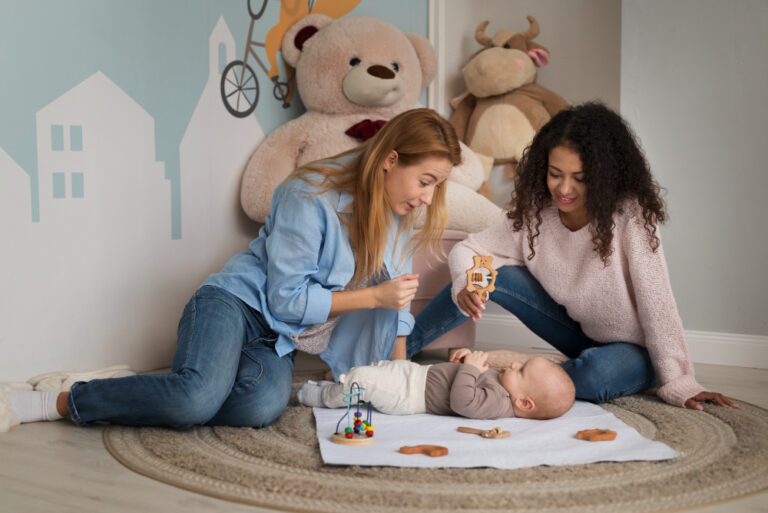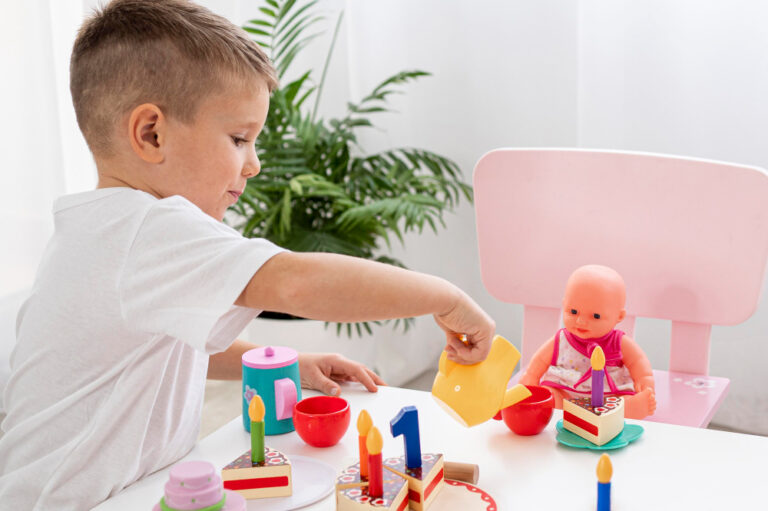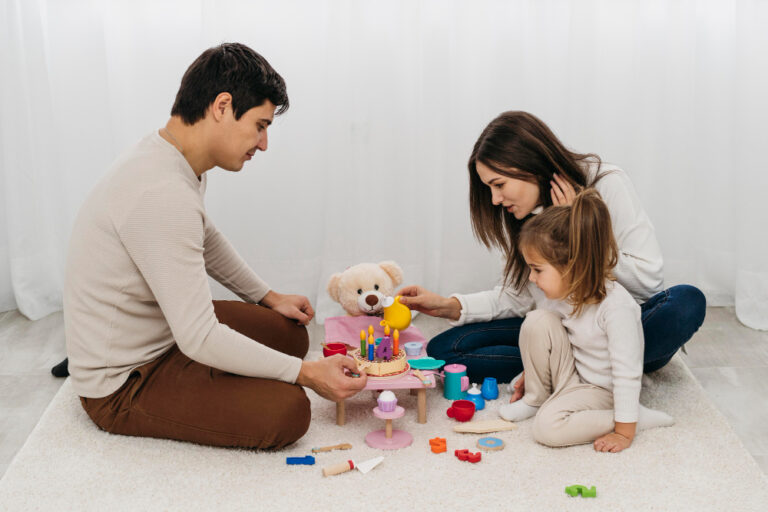10 Baby Care Tips Every New Mom Swears By
New motherhood brings joy, curiosity, and countless questions. Tiny yawns, soft cuddles, and spontaneous routines fill each day with memories and a steep learning curve. Simple habits often make a big difference in daily care, creating a smoother experience for both mother and baby.
Gentle touch, mindful observation, and practical know-how build confidence in caring for a newborn. Quality bonding time not only calms your little one but also strengthens emotional connection.
Clean feeding tools, a safe sleeping space, and skin-friendly products play vital roles in supporting your baby’s health and comfort. Paying close attention to cues such as crying patterns or facial expressions helps manage needs quickly.
Seasons may change, yet a baby’s requirement for warmth, love, and protection stays constant. Staying organized with essentials, trusting maternal instincts, and keeping routines flexible makes everyday care less overwhelming and far more rewarding.
10 Baby Care Tips for Mother
Bringing a baby home feels magical. But caring for a newborn can feel overwhelming too. A new mom may feel tired, unsure, or even scared. That’s normal. With the right support and helpful tips, the journey gets easier.
Here are 10 simple baby care tips every mother can follow. These ideas make daily routines smoother, safer, and more enjoyable for both mom and baby.
1. Stick to a Simple Routine

Babies feel safe with routine. Simple daily habits help them feel secure. Regular sleep, feeding, and bath times build a natural rhythm. It also helps moms stay organized. Start with small steps.
Try feeding and putting the baby to sleep around the same time each day. Keep bath time and playtime at fixed hours too. Over time, the baby starts expecting what comes next. Less fuss. More peace. Don’t worry if some days feel off. Keep it flexible, but steady.
2. Keep Skin Clean and Dry
A newborn’s skin is soft and sensitive. Wet skin causes rashes, redness, or discomfort. Diapers, sweat, or milk spills can lead to skin issues. Always wipe the baby’s skin gently. Use soft cotton cloths or baby wipes without alcohol or fragrance.
After wiping, let the area dry fully. Use mild baby powder or diaper cream if needed. For bath time, choose lukewarm water and a baby-friendly soap. Never rub harshly. Pat the skin gently. And always keep extra clothes and cloths ready.
3. Breastfeeding Needs Patience

Breastfeeding can take time to adjust. Sometimes, the baby finds it hard to latch. Sometimes, it hurts. Don’t feel upset. Many moms face this.
Find a calm spot to feed. Sit in a way that supports your back. Hold the baby close, with their head facing your breast. Try different positions until it feels right.
If there’s pain or the baby doesn’t feed well, speak to a doctor or nurse. They often give great tips. Drink plenty of water and rest when the baby sleeps. It helps milk flow better.
4. Check the Diaper Often
Wet diapers make the baby cranky. A dirty diaper can cause rashes and infection. So it’s best to check it often. Newborns usually need a diaper change every 2–3 hours.
Use diapers that feel soft and absorb well. Always clean the area gently with warm water or baby wipes. After cleaning, let the skin dry before putting on a fresh diaper.
During sleep, some moms use nighttime diapers to keep the baby dry longer. Keep diaper cream nearby. It helps protect the baby’s skin from wetness.
5. Burping After Feeding Helps

Babies often swallow air while feeding. This air causes gas and makes them cry. Burping helps remove that air. Hold the baby upright after feeding. Gently pat or rub the back. Some babies burp quickly.
Others take time. Stay patient. Try different ways: over your shoulder, sitting up, or across your lap. Use a cloth under their mouth. Some milk may come out while burping. That’s normal.
If the baby doesn’t burp after 10–15 minutes, lay them down gently on their back. Try again after a few minutes.
6. Keep the Umbilical Cord Area Clean
Newborns have a small cord stump on their belly. It takes 1–2 weeks to fall off. Until then, keep it clean and dry. Avoid giving a full bath until it falls off. Use a sponge bath instead.
Clean around the cord with a soft cloth and warm water. Pat it dry. Don’t cover it with a diaper. Fold the diaper below the cord area.
This keeps air flowing and helps it dry faster. Never pull the stump off. Let it fall naturally. If there’s a bad smell, pus, or bleeding, talk to a doctor.
7. Sleep Time Must Be Safe

Newborns sleep a lot. But safe sleep is very important. Wrong positions or soft bedding can be risky. Always place the baby on their back to sleep. Use a flat and firm mattress.
Don’t use pillows, blankets, or stuffed toys in the crib. Keep the crib clean and simple. The baby can sleep in the same room but not in the same bed.
This keeps the baby close but safe. Also, dress the baby in light clothes. Overheating during sleep is unsafe. Watch the baby often while they nap. It gives peace of mind.
8. Talk and Cuddle Often
Newborns don’t understand words. But they feel love. Your voice and touch mean a lot. Talk to your baby while feeding, bathing, or changing diapers.
Say their name. Sing softly. Smile often. These little actions build strong bonds. Cuddle your baby. Rock them gently. Hold them close. It builds trust. Babies who feel loved cry less and sleep better.
Skin-to-skin contact also keeps the baby warm and calm. You don’t need fancy toys or apps. A mother’s touch is enough.
9. Keep Visitors Limited

Everyone wants to meet the baby. But the baby’s immunity is still growing. Too many visitors can be risky. Limit the number of people visiting. Ask them to wash their hands first.
Sick visitors should stay away. Even a small cold can affect a baby. Keep the room clean. Air it out daily. Don’t allow people to kiss the baby’s face.
Germs spread fast that way. Make sure you rest too. A tired mom needs space and peace. Say no politely when needed.
10. Trust Yourself and Ask for Help
Motherhood brings new challenges. Every baby is different. No one has all the answers. That’s okay. Listen to your instinct. You know your baby best.
If something feels wrong, don’t wait. Ask a nurse or doctor. Also, don’t try to do everything alone. Ask family members to help. Take breaks.
Eat well. Sleep when the baby sleeps. A healthy mom means a happy baby. And always remember: you are doing your best.
FAQs
How many hours should a newborn sleep?
Most newborns sleep 14 to 17 hours a day. But it may happen in short naps. Babies usually wake every 2–3 hours for feeding.
How often should I feed my baby?
Newborns need feeding every 2–3 hours. If breastfeeding, let the baby suck until they stop. If using formula, follow the doctor’s advice.
What should I do if my baby cries a lot?
Check for common problems. Hunger, wet diaper, gas, or tiredness. Hold and soothe the baby. If the cry sounds strange or lasts long, call a doctor.
How do I know my baby is getting enough milk?
Watch for signs: regular wet diapers, weight gain, and peaceful sleep after feeding. If unsure, ask a doctor or lactation expert.
When can I give my baby a bath?
Wait until the cord stump falls off. Give sponge baths before that. Afterward, you can bathe the baby 2–3 times a week with warm water and gentle soap.
What if I feel too tired or sad?
It’s normal to feel tired or low. Rest when you can. Talk to your partner or a friend. If the sad feeling lasts many days, speak to a doctor. You are not alone.
Can I go outside with my newborn?
Yes, but keep it short and safe. Avoid crowded places. Make sure the baby is dressed for the weather. Always carry extra clothes and diapers.
Is it okay to let others hold my baby?
Yes, but only trusted people. Ask them to wash their hands. Don’t let anyone sick hold the baby. Stay nearby and watch.
How do I bond with my baby?
Talk, sing, and cuddle often. Make eye contact. Respond to their sounds. Daily care builds strong love.
Do I need baby products like lotions and oils?
Use only mild and safe products. Read the label. Too many products can irritate the baby’s skin. Always test a small amount first.
Conclusion
Caring for a newborn feels hard in the beginning. But each small step builds trust, love, and connection. A mother’s touch, voice, and care matter more than anything.
Stay calm. Keep things simple. Watch your baby grow day by day. The journey may feel tiring, but it’s also full of joy. You don’t need to be perfect. You only need to be present. One gentle moment at a time.







